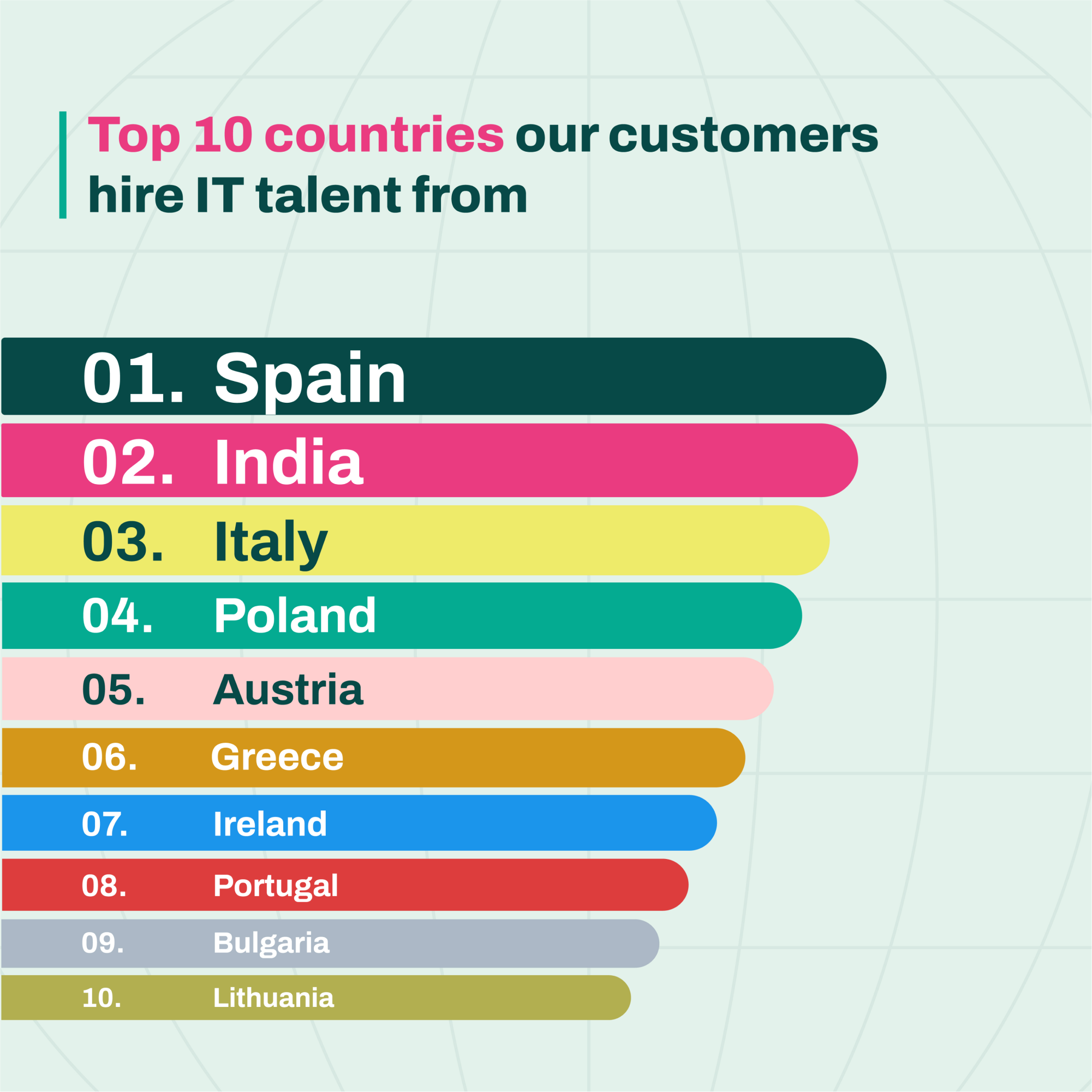The country has an acute shortage of workers in the IT, healthcare, engineering, and construction sectors.
“The biggest challenge for Europe's largest economy will be growth constraints due to a workforce shortage” the German Economy Minister Robert Habeck said recently. “The shortage of skilled workers is the number one problem, which is set to get worse in the coming years, dampening growth.”

So what’s going on? Let’s look at some facts:
There are around 700,000 skilled labour vacancies currently unfilled
The baby boomers will retire over the next couple of years and leave an additional hole
The economy is expected to grow 0.2% this year, far less than the forecast of 1.3%
2.6 million people aged between 20 and 30 in Germany have no professional qualification and cannot fill these open positions
According to Reuters, about 50% of German companies are struggling to fill vacancies
Industries most affected by labour shortage in Germany
1. Information Technology (IT) and Software Development:
According to a study by the German Economic Institute (Institut der deutschen Wirtschaft), the IT sector in Germany has been experiencing a persistent shortage of skilled workers.
“This talent shortage can be seen within the area of data science, which alone has reached a new low with 19,000 open positions at the moment. ”
2. Engineering and Manufacturing:
The demand for engineers is exceeding the supply, impacting the manufacturing sector. The Association of German Engineers (VDI) reported a significant shortage of skilled engineers in Germany of around 170,000 positions. This shortage extended across various engineering disciplines, including mechanical, electrical, and automotive engineering.
3. Healthcare and Nursing:
The German Hospital Institute (Deutsches Krankenhausinstitut) calls the current situation in hospitals “alarming”. The country is facing a deficit of qualified nurses, which is affecting the quality of patient care. 94% of German hospitals are currently not able to fill their open nursing positions. The demand for healthcare professionals like doctors and nurses is expected to rise further due to an ageing population.
4. Skilled Trades and Craftsmanship:
There's a serious shortage of skilled craftsmen such as carpenters, electricians, and plumbers. The ageing workforce and a decline in young people entering vocational training programs were identified as contributing factors, leading to a gap in skilled workers in these crucial sectors.
Top reasons for talent shortage in Germany
So how did we get here? Let’s explore the main reasons for the lack of skilled talent in Germany:
Ageing population: The Federal Statistical Office reports that the average age of the German workforce has been steadily increasing, reaching 44.1 years in 2020. Many employees will leave the labour market soon, while not enough graduates will join at the same rate
Skills mismatch: Research by McKinsey highlights that while Germany invests heavily in vocational education, there remains a gap between the skills taught and those demanded by employers. With the demand for digital skills on the rise, there's a palpable shortage of qualified professionals.
Hurdles in labour mobility: While Germany's labour market is known for its stability, a certain degree of inflexibility poses challenges in addressing the shortage.
Stringent labour laws and regulations, intended to safeguard workers, inadvertently create barriers for companies to hire employees from other countries.
Workplace dynamics: Factors such as rigid labour market regulations, lack of flexibility in employment contracts, and cultural norms surrounding work-life balance also contribute to the shortage. These factors deter potential workers, particularly younger generations, from fully engaging in the labour market.
So what can be done?
Global hiring can offer a quick and effective solution to talent shortage. Businesses in Germany can onboard employees from around the world, without having to relocate them or wait for long onboarding processes.
In light of these new revelations, the need for global hiring simply can’t be denied. This is true especially for white collar jobs such as in IT & Software and Sales, hiring talent from other European countries is a game changer.
“For example, Portugal has the second highest rate of Engineering graduates in the EU according to Eurostat. Out of the yearly 90,000 graduates in this sector, many work in the ICT field. Why not hire your next talent there? ”



